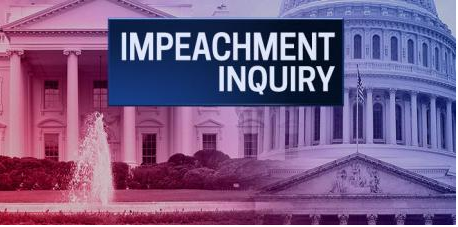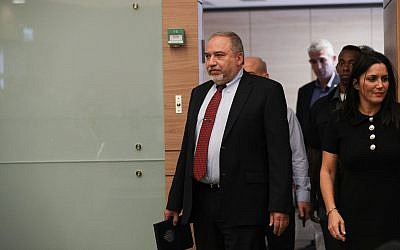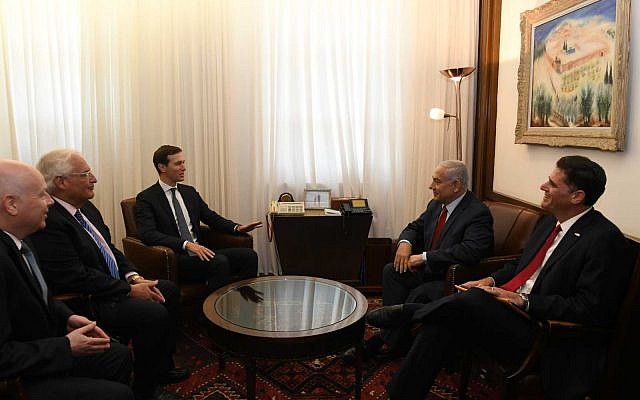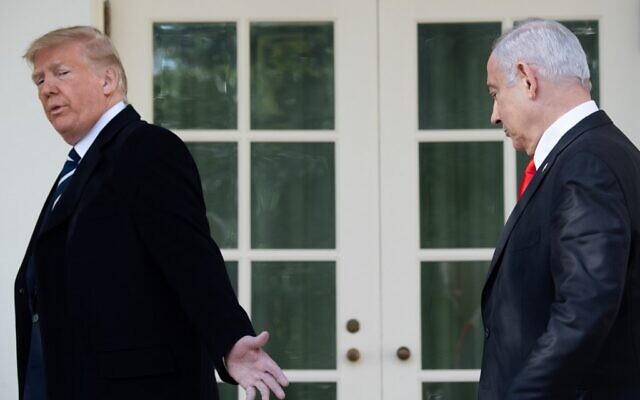News Review - 10:41 AM 2/3/2020 - 18 hours ago - Blue and White leader Benny Gantz meets with Yisrael Beteynu chairman ... Yisrael Beytenu leader Avigdor Liberman has come to an agreement with Blue and ... “This coalition has already been stitched together, and this is a danger to the ...

News Review - 10:41 AM 2/3/2020 - Post Link
 Audio News: | VOA Newscasts | NPR News Now | NPR News Now On RSS Dog |
Audio News: | VOA Newscasts | NPR News Now | NPR News Now On RSS Dog |
Michael Novakhov – SharedNewsLinks℠ | Michael Novakhov – SharedNewsLinks℠ – on RSS Dog | Michael Novakhov – SharedNewsLinks℠ – In Brief | Trump Investigations News In Brief – http://feed.informer.com/share/CGD4YTZW07 | Trump Investigations News – Page Link – News In Brief | Tweets | Videos | Michael Novakhov – SharedNewsLinks℠ – Page
___________________________________________________________
Selected and Editorial Posts
THE REAL COUP WAS IN 2016 | THE PSYCHOANALYSIS OF INTELLIGENCE OPERATIONS
____________________________________________________
Check out C-SPAN’s Impeachment Inquiry Page: https://www.c-span.org/impeachment |

Post Link | C-SPAN has launched a new web page, c-span.org/impeachment, devoted to Congress’ impeachment inquiry into President Donald Trump. The goal is to provide one-stop shopping for all of C-SPAN’s coverage of the inquiry, including the latest Hill tweets, various news conferences and hearings, and the Trump Administration’s response.
» Saved Stories – None: C-SPAN Launches Impeachment Coverage Page
22/10/19 07:34 from Saved Stories from Michael_Novakhov (1 sites)
C-SPAN has launched a new web page, c-span.org/ impeachment , devoted to Congress’ impeachment inquiry into President Donald Trump. The goal … Saved Stories – None
22/10/19 07:34 from Saved Stories from Michael_Novakhov (1 sites)
C-SPAN has launched a new web page, c-span.org/ impeachment , devoted to Congress’ impeachment inquiry into President Donald Trump. The goal … Saved Stories – None
_______________________________________________
» Saved Stories - None: "Trump digital operations" - Google News: Soleimani's enigmatic successor vows revenge on US | TheHill - The Hill
02/02/20 19:08 from Saved Stories from Michael_Novakhov (1 sites)
Soleimani's enigmatic successor vows revenge on US | TheHill The Hill "Trump digital operations" - Google News Saved Stories - None
02/02/20 19:08 from Saved Stories from Michael_Novakhov (1 sites)
Soleimani's enigmatic successor vows revenge on US | TheHill The Hill "Trump digital operations" - Google News Saved Stories - None
» Saved Stories - None: Gulf states vs Iran and Arab League on 'Deal of Century'
02/02/20 18:39 from Saved Stories from Michael_Novakhov (1 sites)
For instance Prime Minister Benjamin Netanyahu visited Oman in 2018 and several other Israeli ministers have visited the UAE or planned to visit. Saved Stories - None
02/02/20 18:39 from Saved Stories from Michael_Novakhov (1 sites)
For instance Prime Minister Benjamin Netanyahu visited Oman in 2018 and several other Israeli ministers have visited the UAE or planned to visit. Saved Stories - None
» Saved Stories - None: Letter to the Editor: Senators must vote to remove president from office
02/02/20 18:39 from Saved Stories from Michael_Novakhov (1 sites)
It is time to remove President Donald Trump from office. ... Further, he has obstructed legally authorized investigations into this corrupt behavior. Saved Stories - None
02/02/20 18:39 from Saved Stories from Michael_Novakhov (1 sites)
It is time to remove President Donald Trump from office. ... Further, he has obstructed legally authorized investigations into this corrupt behavior. Saved Stories - None
» Saved Stories - None: Germany Is Afraid of America's 'Big Tech'
02/02/20 18:38 from Saved Stories from Michael_Novakhov (1 sites)
Michael_Novakhov shared this story from The National Interest. Perhaps the only people more terrified of Big Tech (AppleMicrosoftAlphabetAmazonFacebook) than American anti-tech activists are America’s economic competitors. Take Germany, ...
02/02/20 18:38 from Saved Stories from Michael_Novakhov (1 sites)
Michael_Novakhov shared this story from The National Interest. Perhaps the only people more terrified of Big Tech (AppleMicrosoftAlphabetAmazonFacebook) than American anti-tech activists are America’s economic competitors. Take Germany, ...
» Saved Stories - None: Column: There's only one way to remove Donald Trump from office
02/02/20 18:36 from Saved Stories from Michael_Novakhov (1 sites)
But since then I have left the outrage to my liberal friends, watching them put their hopes in Robert Mueller's investigation , in law enforcement and ... Saved Stories - None
02/02/20 18:36 from Saved Stories from Michael_Novakhov (1 sites)
But since then I have left the outrage to my liberal friends, watching them put their hopes in Robert Mueller's investigation , in law enforcement and ... Saved Stories - None
» Saved Stories - None: Adam Schiff Claims 'I Don't Know Who the Whistleblower Is'
02/02/20 18:36 from Saved Stories from Michael_Novakhov (1 sites)
On Wednesday, House Intelligence Chairman Adam Schiff urged that he did not know the identification of the supposed “whistleblower” who ... Saved Stories - None
02/02/20 18:36 from Saved Stories from Michael_Novakhov (1 sites)
On Wednesday, House Intelligence Chairman Adam Schiff urged that he did not know the identification of the supposed “whistleblower” who ... Saved Stories - None
» Saved Stories - None: mikenov on Twitter: The Operation Trump and The New Abwehr ...
02/02/20 18:35 from Saved Stories from Michael_Novakhov (1 sites)
mikenov on Twitter: The Operation Trump and The New Abwehr – Web Review … The Trump Investigations Blog by Michael Novakhov – Review … [PDF] The New Abwehr and Operation Trump … Saved Stories - None
02/02/20 18:35 from Saved Stories from Michael_Novakhov (1 sites)
mikenov on Twitter: The Operation Trump and The New Abwehr – Web Review … The Trump Investigations Blog by Michael Novakhov – Review … [PDF] The New Abwehr and Operation Trump … Saved Stories - None
» Saved Stories - None: "donald trump russia" - Google News: Lamar Alexander: 'Mistake' for Trump to Peddle Russian Propaganda by Mentioning CrowdStrike - The Daily Beast
02/02/20 18:35 from Saved Stories from Michael_Novakhov (1 sites)
Lamar Alexander: 'Mistake' for Trump to Peddle Russian Propaganda by Mentioning CrowdStrike The Daily Beast After surviving Mueller and impeachment, Trump more emboldened than ever as he fights for reelection CN...
02/02/20 18:35 from Saved Stories from Michael_Novakhov (1 sites)
Lamar Alexander: 'Mistake' for Trump to Peddle Russian Propaganda by Mentioning CrowdStrike The Daily Beast After surviving Mueller and impeachment, Trump more emboldened than ever as he fights for reelection CN...
» Saved Stories - None: He believes the absence of venture capital to encourage entrepreneurship in the last half-century has played a central role in why the innovation pendulum shifted to the US. …Germany Is Afraid of America's 'Big Tech' | The National
02/02/20 18:35 from Saved Stories from Michael_Novakhov (1 sites)
He believes the absence of venture capital to encourage entrepreneurship in the last half-century has played a central role in why the innovation pendulum shifted to the US. … Germany Is Afraid of America's 'Big Tech' | The National Inte...
02/02/20 18:35 from Saved Stories from Michael_Novakhov (1 sites)
He believes the absence of venture capital to encourage entrepreneurship in the last half-century has played a central role in why the innovation pendulum shifted to the US. … Germany Is Afraid of America's 'Big Tech' | The National Inte...
» Saved Stories - None: "crime and terror link" - Google News: Streatham incident: Man shot by police after 'multiple stabbing' is being treated as terror-related - Mirror Online
02/02/20 18:33 from Saved Stories from Michael_Novakhov (1 sites)
Streatham incident: Man shot by police after 'multiple stabbing' is being treated as terror-related Mirror Online "crime and terror link" - Google News Saved Stories - None
02/02/20 18:33 from Saved Stories from Michael_Novakhov (1 sites)
Streatham incident: Man shot by police after 'multiple stabbing' is being treated as terror-related Mirror Online "crime and terror link" - Google News Saved Stories - None
» Saved Stories - None: New documentary cloaks anonymous sources in 'face doubles' roanoke.com/business/new-d… via @roanoketimes
02/02/20 17:24 from Saved Stories from Michael_Novakhov (1 sites)
New documentary cloaks anonymous sources in 'face doubles' roanoke.com/business/new-d… via @roanoketimes Posted by mikenov on Sunday, February 2nd, 2020 4:18pm Saved Stories - None
02/02/20 17:24 from Saved Stories from Michael_Novakhov (1 sites)
New documentary cloaks anonymous sources in 'face doubles' roanoke.com/business/new-d… via @roanoketimes Posted by mikenov on Sunday, February 2nd, 2020 4:18pm Saved Stories - None
» Saved Stories - None: New documentary cloaks anonymous sources in 'face doubles' | Business
02/02/20 17:24 from Saved Stories from Michael_Novakhov (1 sites)
Michael_Novakhov shared this story from www.roanoke.com - RSS Results in business of type article. PARK CITY, Utah — In documentaries, anonymous sources have often been reduced to a shadowy, voice-distorted figure — or worse, a pixelated...
02/02/20 17:24 from Saved Stories from Michael_Novakhov (1 sites)
Michael_Novakhov shared this story from www.roanoke.com - RSS Results in business of type article. PARK CITY, Utah — In documentaries, anonymous sources have often been reduced to a shadowy, voice-distorted figure — or worse, a pixelated...
» Saved Stories - None: GOP Sen. Lamar Alexander: Trump Made 'Mistake' By Pushing Russian Propaganda
02/02/20 17:24 from Saved Stories from Michael_Novakhov (1 sites)
The Tennessee lawmaker said he's going to vote to acquit the president anyway. Saved Stories - None
02/02/20 17:24 from Saved Stories from Michael_Novakhov (1 sites)
The Tennessee lawmaker said he's going to vote to acquit the president anyway. Saved Stories - None
» Saved Stories - None: "crime and terror link" - Google News: Streatham attack: Man shot dead by police after several stabbed in ‘terror incident’ in London - The Independent
02/02/20 17:23 from Saved Stories from Michael_Novakhov (1 sites)
Streatham attack: Man shot dead by police after several stabbed in ‘terror incident’ in London The Independent "crime and terror link" - Google News Saved Stories - None
02/02/20 17:23 from Saved Stories from Michael_Novakhov (1 sites)
Streatham attack: Man shot dead by police after several stabbed in ‘terror incident’ in London The Independent "crime and terror link" - Google News Saved Stories - None
» Saved Stories - None: "US elections and russia" - Google News: Russia doubts viability of Trump peace plan, EU stresses commitment to 2 states - The Times of Israel
02/02/20 17:23 from Saved Stories from Michael_Novakhov (1 sites)
Russia doubts viability of Trump peace plan, EU stresses commitment to 2 states The Times of Israel "US elections and russia" - Google News Saved Stories - None
02/02/20 17:23 from Saved Stories from Michael_Novakhov (1 sites)
Russia doubts viability of Trump peace plan, EU stresses commitment to 2 states The Times of Israel "US elections and russia" - Google News Saved Stories - None
» Saved Stories - None: ‘Welcome to Chechnya,’ Sundance’s Horrific ‘Gay Purge’ Documentary Every Human Must See
02/02/20 17:22 from Saved Stories from Michael_Novakhov (1 sites)
Michael_Novakhov shared this story from The Daily Beast Latest Articles. ‘Welcome to Chechnya’: Sundance’s Horrific ‘Gay Purge’ Documentary Every Human Must See SUNDANCE 2020 Since 2017, the Chechen government has been kidnapping, tortur...
02/02/20 17:22 from Saved Stories from Michael_Novakhov (1 sites)
Michael_Novakhov shared this story from The Daily Beast Latest Articles. ‘Welcome to Chechnya’: Sundance’s Horrific ‘Gay Purge’ Documentary Every Human Must See SUNDANCE 2020 Since 2017, the Chechen government has been kidnapping, tortur...
» Saved Stories - None: "Donald Trump" - Google News: Senate Republicans prepare to acquit Donald Trump in impeachment trial, despite reservations - Washington Times
02/02/20 17:21 from Saved Stories from Michael_Novakhov (1 sites)
Senate Republicans prepare to acquit Donald Trump in impeachment trial, despite reservations Washington Times "Donald Trump" - Google News Saved Stories - None
02/02/20 17:21 from Saved Stories from Michael_Novakhov (1 sites)
Senate Republicans prepare to acquit Donald Trump in impeachment trial, despite reservations Washington Times "Donald Trump" - Google News Saved Stories - None
» Saved Stories - None: "social media in trump campaign" - Google News: Media Attacks Aren't Slowing Sanders's Surge — They're Showing His Independence - Truthout
02/02/20 17:21 from Saved Stories from Michael_Novakhov (1 sites)
Media Attacks Aren't Slowing Sanders's Surge — They're Showing His Independence Truthout "social media in trump campaign" - Google News Saved Stories - None
02/02/20 17:21 from Saved Stories from Michael_Novakhov (1 sites)
Media Attacks Aren't Slowing Sanders's Surge — They're Showing His Independence Truthout "social media in trump campaign" - Google News Saved Stories - None
» Saved Stories - None: 'Welcome to Chechnya,' Sundance's Horrific 'Gay Purge ...3 days ago - The anti-gay purge in Chechnya began in 2017. ... Chechen leader Ramzan Kadyrov, who vowed to “cleanse the blood” of LGBT+ Chechens.Gay Purge - Google Search goo
02/02/20 17:20 from Saved Stories from Michael_Novakhov (1 sites)
'Welcome to Chechnya,' Sundance's Horrific 'Gay Purge ... 3 days ago - The anti-gay purge in Chechnya began in 2017. ... Chechen leader Ramzan Kadyrov, who vowed to “cleanse the blood” of LGBT+ Chechens. Gay Purge - Google Search google....
02/02/20 17:20 from Saved Stories from Michael_Novakhov (1 sites)
'Welcome to Chechnya,' Sundance's Horrific 'Gay Purge ... 3 days ago - The anti-gay purge in Chechnya began in 2017. ... Chechen leader Ramzan Kadyrov, who vowed to “cleanse the blood” of LGBT+ Chechens. Gay Purge - Google Search google....
» Saved Stories - None: Politicizing the Holocaust is a danger to us all
02/02/20 17:19 from Saved Stories from Michael_Novakhov (1 sites)
Putin's speech included false claims about the percentage of Soviet Jews ... Putin also highlighted the role played by local collaborators in Eastern ... At several points during their opening argument, President Trump's defense. Saved S...
02/02/20 17:19 from Saved Stories from Michael_Novakhov (1 sites)
Putin's speech included false claims about the percentage of Soviet Jews ... Putin also highlighted the role played by local collaborators in Eastern ... At several points during their opening argument, President Trump's defense. Saved S...
» Saved Stories - None: Lindsey Graham: Senate Intelligence Committee will call Ukraine whistleblower
02/02/20 16:38 from Saved Stories from Michael_Novakhov (1 sites)
The complaint, which the intelligence community inspector general ... Impeachment proceedings began last fall with Democrats accusing Trump of ... Saved Stories - None
02/02/20 16:38 from Saved Stories from Michael_Novakhov (1 sites)
The complaint, which the intelligence community inspector general ... Impeachment proceedings began last fall with Democrats accusing Trump of ... Saved Stories - None
» Saved Stories - None: "#GayPurge" "#Trumpism-#Putinism" are symptoms. #FascistHomophobia is #ReactionFormation to #LatentHomosexuality. #GlobalThreat of #expanding #NewAbwehr #Domination is #DISEASE. Do you hear this, #POLITBURO? You are #Infection,
02/02/20 16:37 from Saved Stories from Michael_Novakhov (1 sites)
"#GayPurge" "#Trumpism-#Putinism" are symptoms. #FascistHomophobia is #ReactionFormation to #LatentHomosexuality. #GlobalThreat of #expanding #NewAbwehr #Domination is #DISEASE. Do you hear this, #POLITBURO? You are #Infection, #ZARAZA, ...
02/02/20 16:37 from Saved Stories from Michael_Novakhov (1 sites)
"#GayPurge" "#Trumpism-#Putinism" are symptoms. #FascistHomophobia is #ReactionFormation to #LatentHomosexuality. #GlobalThreat of #expanding #NewAbwehr #Domination is #DISEASE. Do you hear this, #POLITBURO? You are #Infection, #ZARAZA, ...
» Saved Stories - None: Netanyahu to visit Uganda amid rumors country will open embassy in Jerusalem
02/02/20 16:36 from Saved Stories from Michael_Novakhov (1 sites)
Prime Minister Benjamin Netanyahu will be heading to Uganda on Monday for a one-day working meeting with Ugandan President Yoweri Kaguta ... Saved Stories - None
02/02/20 16:36 from Saved Stories from Michael_Novakhov (1 sites)
Prime Minister Benjamin Netanyahu will be heading to Uganda on Monday for a one-day working meeting with Ugandan President Yoweri Kaguta ... Saved Stories - None
» Saved Stories - None: 'Deal of the Century,' or deceit of the century? – opinion
02/02/20 16:34 from Saved Stories from Michael_Novakhov (1 sites)
The main problem is that while the deal takes full account of Israel's ... after the elections , and that Benny Gantz does not share Netanyahu's agenda. Saved Stories - None
02/02/20 16:34 from Saved Stories from Michael_Novakhov (1 sites)
The main problem is that while the deal takes full account of Israel's ... after the elections , and that Benny Gantz does not share Netanyahu's agenda. Saved Stories - None
» Saved Stories - None: Legal Panel to Rehear Netanyahu's Request to Get Loan From US Mogul for Defense Fees
02/02/20 16:34 from Saved Stories from Michael_Novakhov (1 sites)
In its request for more information from the prime minister, the prior committee requested details regarding Netanyahu's assets in Israel and abroad “of ... Saved Stories - None
02/02/20 16:34 from Saved Stories from Michael_Novakhov (1 sites)
In its request for more information from the prime minister, the prior committee requested details regarding Netanyahu's assets in Israel and abroad “of ... Saved Stories - None
» Saved Stories - None: "social media in trump campaign" - Google News: 'Pathological liar': Bloomberg hits back at Trump 'Mini Mike' insult - The Guardian
02/02/20 16:31 from Saved Stories from Michael_Novakhov (1 sites)
'Pathological liar': Bloomberg hits back at Trump 'Mini Mike' insult The Guardian "social media in trump campaign" - Google News Saved Stories - None
02/02/20 16:31 from Saved Stories from Michael_Novakhov (1 sites)
'Pathological liar': Bloomberg hits back at Trump 'Mini Mike' insult The Guardian "social media in trump campaign" - Google News Saved Stories - None
» Saved Stories - None: "israel and germany" - Google News: Britain and Germany must carry their shared interests forward - The Times
02/02/20 16:30 from Saved Stories from Michael_Novakhov (1 sites)
Britain and Germany must carry their shared interests forward The Times "israel and germany" - Google News Saved Stories - None
02/02/20 16:30 from Saved Stories from Michael_Novakhov (1 sites)
Britain and Germany must carry their shared interests forward The Times "israel and germany" - Google News Saved Stories - None
» Saved Stories - None: "Russia influence in Eastern Europe" - Google News: EU's fragile democracy - newagebd.net
02/02/20 16:30 from Saved Stories from Michael_Novakhov (1 sites)
EU's fragile democracy newagebd.net "Russia influence in Eastern Europe" - Google News Saved Stories - None
02/02/20 16:30 from Saved Stories from Michael_Novakhov (1 sites)
EU's fragile democracy newagebd.net "Russia influence in Eastern Europe" - Google News Saved Stories - None
» Saved Stories - None: Is this the correct interpretation, Mr. #Bortnikov? Would you like me to continue to elaborate on this subject? | #TweetsByMikeNov | #GaysInChechnya, #HumanRightsInRussia - 12:57 PM 2/2/2020
02/02/20 16:28 from Saved Stories from Michael_Novakhov (1 sites)
Michael_Novakhov shared this story from The FBI News Review - fbinewsreview.blogspot.com - Blog by Michael Novakhov. Из альбома к материалу Совещание с постоянными членами Совета Безопасности 31 января 2020 года Москва, Кремль _________...
02/02/20 16:28 from Saved Stories from Michael_Novakhov (1 sites)
Michael_Novakhov shared this story from The FBI News Review - fbinewsreview.blogspot.com - Blog by Michael Novakhov. Из альбома к материалу Совещание с постоянными членами Совета Безопасности 31 января 2020 года Москва, Кремль _________...
» Saved Stories - None: After Arab League rejects peace plan, US official laments approach as outdated
01/02/20 17:46 from Saved Stories from Michael_Novakhov (1 sites)
... 12 news reported that Haspel assured them Washington would seek to prevent Israel from annexing West Bank land before the March 2 election , ... Saved Stories - None
01/02/20 17:46 from Saved Stories from Michael_Novakhov (1 sites)
... 12 news reported that Haspel assured them Washington would seek to prevent Israel from annexing West Bank land before the March 2 election , ... Saved Stories - None
» Saved Stories - None: On Eve Of Pompeo Visit, A Shakeup In Belarus's Military And Snap Drills. What Gives?
01/02/20 17:46 from Saved Stories from Michael_Novakhov (1 sites)
Michael_Novakhov shared this story from Radio Free Europe / Radio Liberty. Belarus's longtime ruler ordered a major shake-up of the country's military and security command on January 20, installing a new defense minister, a new general s...
01/02/20 17:46 from Saved Stories from Michael_Novakhov (1 sites)
Michael_Novakhov shared this story from Radio Free Europe / Radio Liberty. Belarus's longtime ruler ordered a major shake-up of the country's military and security command on January 20, installing a new defense minister, a new general s...
» Saved Stories - None: Russia halts oil exports to Belarus
01/02/20 17:00 from Saved Stories from Michael_Novakhov (1 sites)
Russia has halted deliveries of crude to the two Belarusian oil refineries, a representative of the Belarusian State Petrochemical Industry Concern (Belnaftachim) told BelaPAN. Saved Stories - None
01/02/20 17:00 from Saved Stories from Michael_Novakhov (1 sites)
Russia has halted deliveries of crude to the two Belarusian oil refineries, a representative of the Belarusian State Petrochemical Industry Concern (Belnaftachim) told BelaPAN. Saved Stories - None
» Saved Stories - None: Lukašenka introduces tax on oil transportation
01/02/20 16:59 from Saved Stories from Michael_Novakhov (1 sites)
Aliaksandr Lukašenka on January 10 signed a presidential edict introducing an “environmental tax” on oil transportation by pipeline. Saved Stories - None
01/02/20 16:59 from Saved Stories from Michael_Novakhov (1 sites)
Aliaksandr Lukašenka on January 10 signed a presidential edict introducing an “environmental tax” on oil transportation by pipeline. Saved Stories - None
» Saved Stories - None: Belarus’ GDP reported up 1.2 percent in 2019
01/02/20 16:59 from Saved Stories from Michael_Novakhov (1 sites)
Belarus’ Gross Domestic Product (GDP) grew by an estimated 1.2 percent in 2019 to total 132 billion rubels, the National Statistical Committee (Belstat) reported on Thursday. Saved Stories - None
01/02/20 16:59 from Saved Stories from Michael_Novakhov (1 sites)
Belarus’ Gross Domestic Product (GDP) grew by an estimated 1.2 percent in 2019 to total 132 billion rubels, the National Statistical Committee (Belstat) reported on Thursday. Saved Stories - None
» Saved Stories - None: Lithuanian foreign minister to visit Minsk on February 3
01/02/20 16:58 from Saved Stories from Michael_Novakhov (1 sites)
Lithuanian Foreign Minister Linas Linkevicius will visit Belarus on February 3, Andrej Šupliak, the Belarusian foreign ministry’s spokesman, told BelaPAN, without giving any details of the coming visit. Saved Stories - None
01/02/20 16:58 from Saved Stories from Michael_Novakhov (1 sites)
Lithuanian Foreign Minister Linas Linkevicius will visit Belarus on February 3, Andrej Šupliak, the Belarusian foreign ministry’s spokesman, told BelaPAN, without giving any details of the coming visit. Saved Stories - None
» Saved Stories - None: RFE/RL: On eve of Pompeo visit, a shakeup in Belarus's military | KyivPost - Ukraine's Global Voice - Kyiv Post
01/02/20 16:58 from Saved Stories from Michael_Novakhov (1 sites)
RFE/RL: On eve of Pompeo visit, a shakeup in Belarus's military | KyivPost - Ukraine's Global Voice Kyiv Post Saved Stories - None
01/02/20 16:58 from Saved Stories from Michael_Novakhov (1 sites)
RFE/RL: On eve of Pompeo visit, a shakeup in Belarus's military | KyivPost - Ukraine's Global Voice Kyiv Post Saved Stories - None
» Saved Stories - None: Pompeo in Belarus to push better ties, counter Russia, China - Washington Post
01/02/20 16:57 from Saved Stories from Michael_Novakhov (1 sites)
Pompeo in Belarus to push better ties, counter Russia, China Washington Post Saved Stories - None
01/02/20 16:57 from Saved Stories from Michael_Novakhov (1 sites)
Pompeo in Belarus to push better ties, counter Russia, China Washington Post Saved Stories - None
» Saved Stories - None: Pompeo: U.S. producers ready to provide Belarus with oil at competitive prices - Reuters Africa
01/02/20 16:57 from Saved Stories from Michael_Novakhov (1 sites)
Pompeo: U.S. producers ready to provide Belarus with oil at competitive prices Reuters Africa Saved Stories - None
01/02/20 16:57 from Saved Stories from Michael_Novakhov (1 sites)
Pompeo: U.S. producers ready to provide Belarus with oil at competitive prices Reuters Africa Saved Stories - None
» Saved Stories - None: Reuters: Pompeo visits Belarus as Minsk's ties with Moscow fray | KyivPost - Ukraine's Global Voice - Kyiv Post
01/02/20 16:56 from Saved Stories from Michael_Novakhov (1 sites)
Reuters: Pompeo visits Belarus as Minsk's ties with Moscow fray | KyivPost - Ukraine's Global Voice Kyiv Post Saved Stories - None
01/02/20 16:56 from Saved Stories from Michael_Novakhov (1 sites)
Reuters: Pompeo visits Belarus as Minsk's ties with Moscow fray | KyivPost - Ukraine's Global Voice Kyiv Post Saved Stories - None
» Saved Stories - None: Pompeo: Belarus Needs To Not Take Sides Between Russia and U.S. - Radio Free Europe/ Radio Liberty
01/02/20 16:56 from Saved Stories from Michael_Novakhov (1 sites)
Pompeo: Belarus Needs To Not Take Sides Between Russia and U.S. US Radio Free Europe/ Radio Liberty Saved Stories - None
01/02/20 16:56 from Saved Stories from Michael_Novakhov (1 sites)
Pompeo: Belarus Needs To Not Take Sides Between Russia and U.S. US Radio Free Europe/ Radio Liberty Saved Stories - None
» Saved Stories - None: "Elections 2016 Investigation" - Google News: The Putin defense: How far will Donald Trump go now to stay in power? - Salon
01/02/20 13:36 from Saved Stories from Michael_Novakhov (1 sites)
The Putin defense: How far will Donald Trump go now to stay in power? Salon "Elections 2016 Investigation" - Google News Saved Stories - None
01/02/20 13:36 from Saved Stories from Michael_Novakhov (1 sites)
The Putin defense: How far will Donald Trump go now to stay in power? Salon "Elections 2016 Investigation" - Google News Saved Stories - None
» Saved Stories - None: "former FBI agents power influence" - Google News: ‘Angels’ in Hell: The Culture of Misogyny Inside Victoria’s Secret - The New York Times
01/02/20 13:26 from Saved Stories from Michael_Novakhov (1 sites)
‘Angels’ in Hell: The Culture of Misogyny Inside Victoria’s Secret The New York Times "former FBI agents power influence" - Google News Saved Stories - None
01/02/20 13:26 from Saved Stories from Michael_Novakhov (1 sites)
‘Angels’ in Hell: The Culture of Misogyny Inside Victoria’s Secret The New York Times "former FBI agents power influence" - Google News Saved Stories - None
» Saved Stories - None: "trump russia ties" - Google News: Abbas says Palestinians cutting all ties with Israel, US - FRANCE 24
01/02/20 13:26 from Saved Stories from Michael_Novakhov (1 sites)
Abbas says Palestinians cutting all ties with Israel, US FRANCE 24 "trump russia ties" - Google News Saved Stories - None
01/02/20 13:26 from Saved Stories from Michael_Novakhov (1 sites)
Abbas says Palestinians cutting all ties with Israel, US FRANCE 24 "trump russia ties" - Google News Saved Stories - None
» Saved Stories - None: "Donald Trump" - Google News: President Donald Trump Tweetstorm – The Saturday Edition - Deadline
01/02/20 13:08 from Saved Stories from Michael_Novakhov (1 sites)
President Donald Trump Tweetstorm – The Saturday Edition Deadline "Donald Trump" - Google News Saved Stories - None
01/02/20 13:08 from Saved Stories from Michael_Novakhov (1 sites)
President Donald Trump Tweetstorm – The Saturday Edition Deadline "Donald Trump" - Google News Saved Stories - None
» Saved Stories - None: FoxNewsChannel's YouTube Videos: Sen. Bob Casey says blocking impeachment witnesses would be clear indication that Trump is dictating
01/02/20 13:08 from Saved Stories from Michael_Novakhov (1 sites)
From: FoxNewsChannel Duration: 05:59 The best way to get to the truth is to put witnesses under oath, says Pennsylvania Senator Bob Casey, Democratic member of the Senate Finance Committee. FoxNewsChannel's YouTube Videos Saved Stories -...
01/02/20 13:08 from Saved Stories from Michael_Novakhov (1 sites)
From: FoxNewsChannel Duration: 05:59 The best way to get to the truth is to put witnesses under oath, says Pennsylvania Senator Bob Casey, Democratic member of the Senate Finance Committee. FoxNewsChannel's YouTube Videos Saved Stories -...
» Saved Stories - None: "former FBI agents power influence" - Google News: 10 things you should know about socialism - NationofChange
01/02/20 13:07 from Saved Stories from Michael_Novakhov (1 sites)
10 things you should know about socialism NationofChange "former FBI agents power influence" - Google News Saved Stories - None
01/02/20 13:07 from Saved Stories from Michael_Novakhov (1 sites)
10 things you should know about socialism NationofChange "former FBI agents power influence" - Google News Saved Stories - None
» Saved Stories - None: Iranian Envoy Lambasts 'Deal of the Century', Compares US to Satan
01/02/20 13:06 from Saved Stories from Michael_Novakhov (1 sites)
... presented the long-touted peace plan for the Middle East, also known as the "deal of the century", and crafted by his son-in-law/aide Jared Kushner , ... Saved Stories - None
01/02/20 13:06 from Saved Stories from Michael_Novakhov (1 sites)
... presented the long-touted peace plan for the Middle East, also known as the "deal of the century", and crafted by his son-in-law/aide Jared Kushner , ... Saved Stories - None
» Saved Stories - None: "donald trump russia" - Google News: Russia's difficult balancing act between Iran and Israel - Aljazeera.com
01/02/20 13:06 from Saved Stories from Michael_Novakhov (1 sites)
Russia's difficult balancing act between Iran and Israel Aljazeera.com "donald trump russia" - Google News Saved Stories - None
01/02/20 13:06 from Saved Stories from Michael_Novakhov (1 sites)
Russia's difficult balancing act between Iran and Israel Aljazeera.com "donald trump russia" - Google News Saved Stories - None
» Saved Stories - None: NPR News: 02-01-2020 12PM ET
01/02/20 12:35 from Saved Stories from Michael_Novakhov (1 sites)
NPR News: 02-01-2020 12PM ET Download audio: https://play.podtrac.com/npr-500005/edge1.pod.npr.org/anon.npr-mp3/npr/newscasts/2020/02/01/newscast120817.mp3?awCollectionId=500005&awEpisodeId=801876869&orgId=1&d=300&p=50000...
01/02/20 12:35 from Saved Stories from Michael_Novakhov (1 sites)
NPR News: 02-01-2020 12PM ET Download audio: https://play.podtrac.com/npr-500005/edge1.pod.npr.org/anon.npr-mp3/npr/newscasts/2020/02/01/newscast120817.mp3?awCollectionId=500005&awEpisodeId=801876869&orgId=1&d=300&p=50000...
» Saved Stories - None: MidweekPolitics's YouTube Videos: Top Clips of the Week: Bolton Shatters Trump Defense, Trump's Brain Glitches, & Much More!
01/02/20 12:34 from Saved Stories from Michael_Novakhov (1 sites)
From: MidweekPolitics Duration: 43:08 0:00-4:22 Trump's Brain Glitches Badly, Fox News Cuts Away 128 1/29 https://www.youtube.com/watch?v=Ynuzj3r5KgM 4:22-14:54 Fox News Desperately Tries to End Unhinged Giuliani Interview 84 1/27 https:...
01/02/20 12:34 from Saved Stories from Michael_Novakhov (1 sites)
From: MidweekPolitics Duration: 43:08 0:00-4:22 Trump's Brain Glitches Badly, Fox News Cuts Away 128 1/29 https://www.youtube.com/watch?v=Ynuzj3r5KgM 4:22-14:54 Fox News Desperately Tries to End Unhinged Giuliani Interview 84 1/27 https:...
























Comments
Post a Comment